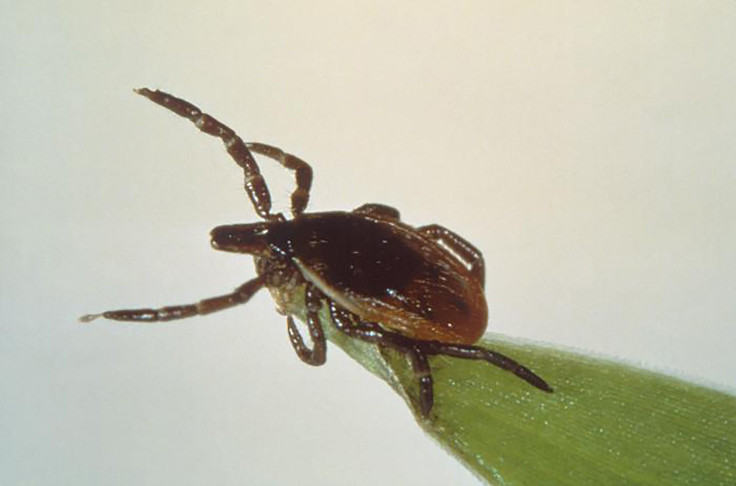Tick-Borne Disease Symptoms, Treatments: Connecticut Man Dies From Rare Illness

A 55-year-old man from New Milford, Connecticut, died earlier this month after contracting a tick-borne disease, which his family thought was a stomach bug, according to multiple reports.
Michael Yoder died Aug. 8 after his liver and kidneys failed due to a severe case of Babesiosis, caused from a tick bite, according to the state medical examiner.
Babesiosis is a disease caused by "microscopic parasites that infect red blood cells and are spread by certain ticks. Babesia microti, the parasite, is transmitted by the bite of infected Ixodes scapularis ticks—typically, by the nymph stage of the tick, which is about the size of a poppy seed," according to the Centers for Disease Control and Prevention (CDC).
Yoder's wife Wendy told the News-Times of Danbury the family was aware of the risks tick bites carry, but they thought it was a stomach bug when her husband started showing symptoms in early summer.
She said it was too late by the time the illness was diagnosed.
Christopher Stan, a spokesman for the state Department of Public Health, said Babesiosis has been present in the state for about 20 years, and the disease is most commonly transmitted by infected deer ticks, local newspaper Hartford Courant reported.
While most tick-borne diseases are said to be caused by bacteria, Babesiosis is a disease caused by a parasite that attacks and damages your red blood cells. The symptoms are similar to flu, including fever, headache, body ache, fatigue; it can also cause low blood pressure, anemia, and liver or kidney problems.
It is usually said to occur in adults and is treated with a mix of anti-parasitic drugs and antibiotics, according to CDC.
There are also other tick-borne diseases such as Lyme disease, and the most common symptoms related to them are: Fever and chills at varying degrees; pain including muscle ache and fatigue. Lyme disease patients might also experience joint pain. The time of onset of symptoms differ from patient to patient. Severity of the disease depends on the patient's tolerance level.
Some tick-borne diseases can be treated at home, but some severe infections require hospitalization.
They are usually treated with antibiotics, even though they are extremely difficult to diagnose. You should see a doctor immediately if you feel you have been bitten by a tick or experience any of the symptoms related to the illness.
However, the best and most effective way to prevent a tick-borne illness would to avoid getting bitten by a tick in the first place. You should be careful when you are outdoors as they live in grass, pile of leaves or bushes and might stick to your bare skin or clothes.
You should use bug repellents when outdoors, try to stay away from tall or thick bushes or grass in the middle of a trail, cover up yourself in full length clothing and look carefully for ticks once you are inside to make sure they are not clinging to you, according to the preventive measures mentioned on the CDC website.
© Copyright IBTimes 2025. All rights reserved.






















